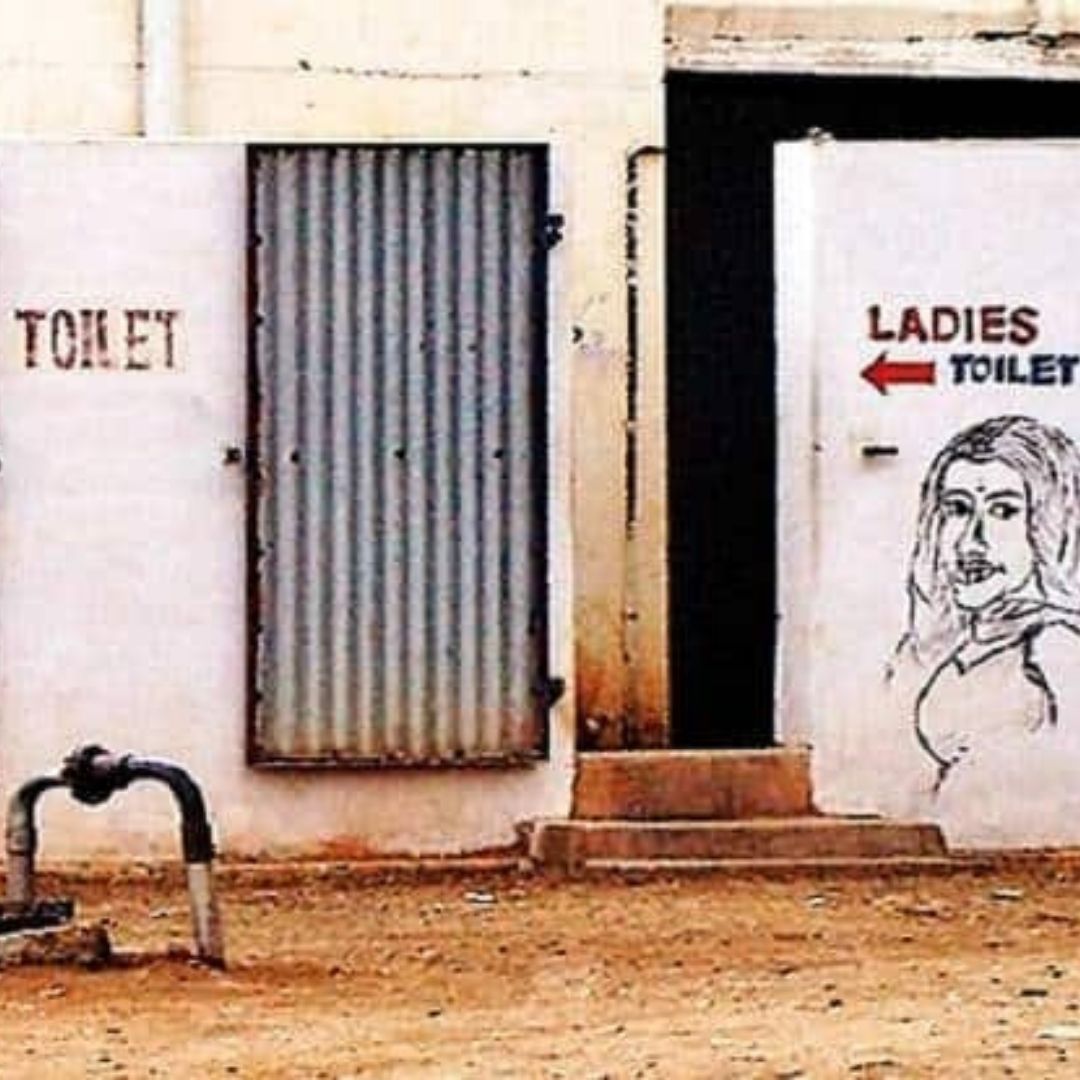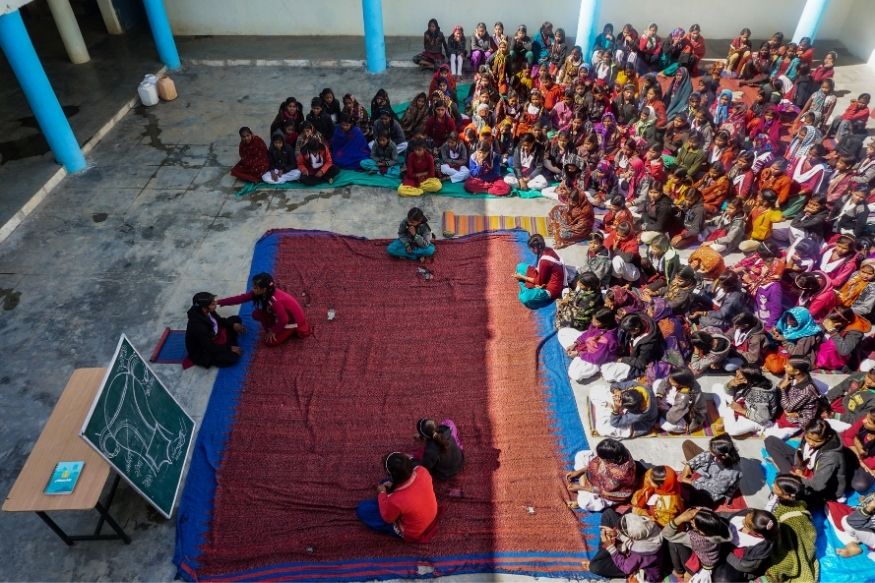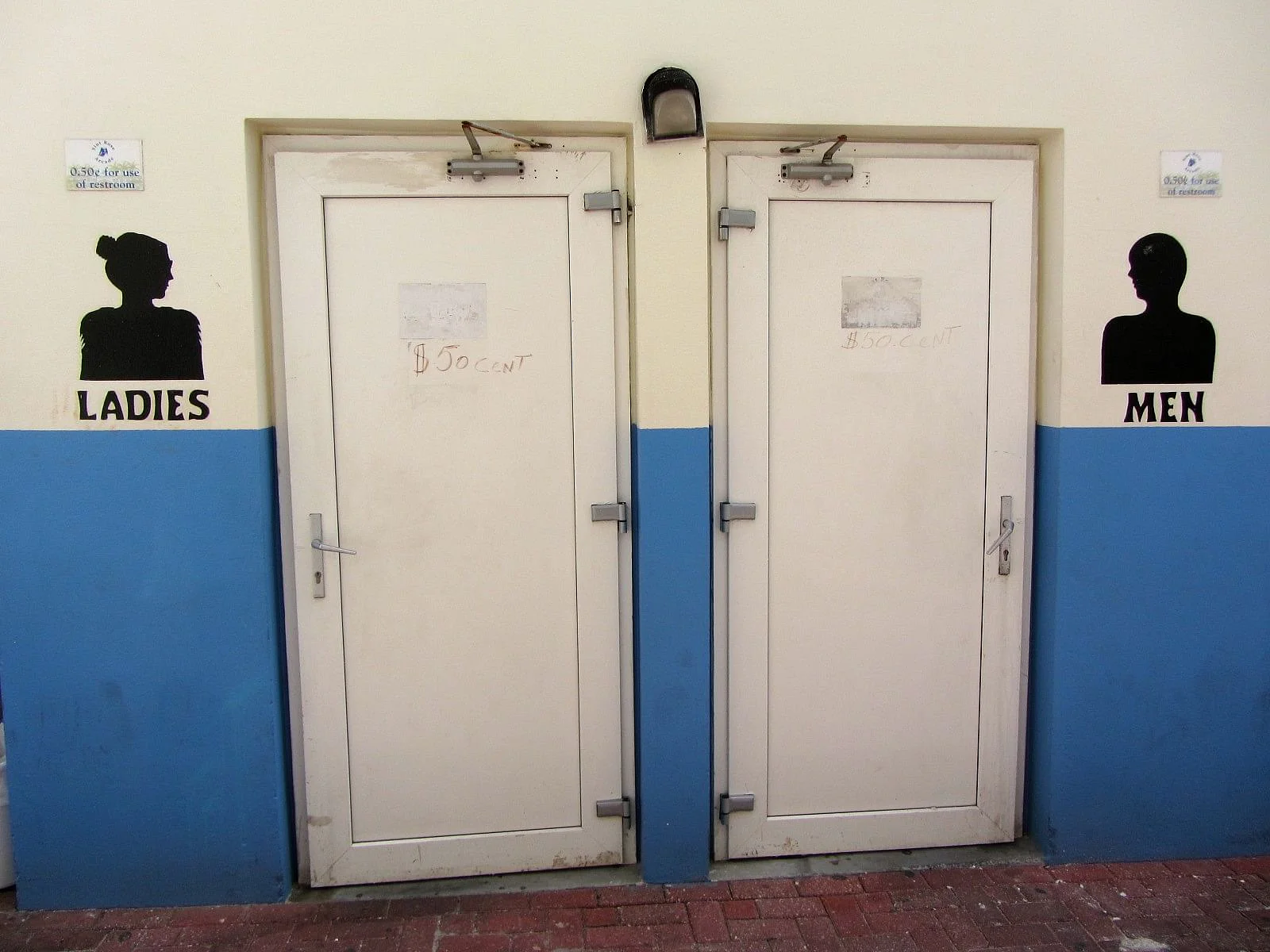By Soumya Singhal and Riya Singh Rathore
Women seldom use public toilets. While many struggle with simply finding one, even women who live in urban spaces like Delhi where public toilets are easily available, avoid using them. This lack of use stems from two major concerns- toilets are often located in secluded, unsafe spots and they are often unsanitary. Hygiene is of great concern, especially when menstruators have to consider accessing a clean bathroom for checking or changing their menstrual products at regular intervals.
Unsanitary toilets increase the risk of infections for those who already have a higher chance of contraction. The aversion to public washrooms is increased by the general stigma around menstrual and reproductive health of women and other menstruators.
To understand how prevalent this avoidance is in the general public, SPRF India and Feminism In India have collaboratively conducted a poll. We asked our menstruating audience questions about their experience with public toilets. Of the 1,835 respondents, 43 percent said they never use a public restroom to change menstrual products. 44 percent said they do so sometimes. The primary reason for not using washroom facilities is that they are seen as unclean and unsafe. On being asked how often they find sanitary products for use in public washrooms, 76 percent of the 1,550 respondents said, never.
.jpg)
Where does gender figure?
Over the years, a few policies have attempted to address universal sanitation. The Swachh Bharat Mission, launched in 2014, aimed to ensure widespread sanitation coverage in India. The Swachh Bharat Mission – Urban (SBM-U) scheme constructed 6,42,210 toilets in Indian cities, surpassing the mission’s original target of 5,07,587. Private partners like Sulabh international also aided government efforts in providing adequate public sanitation facilities.
Despite the rapid infrastructure development, the Swachh Bharat Mission – Urban remains “gender-blind”. SPRF India’s Gender Responsiveness Tracker found that the only gender-sensitive aspect in the SBM-U guidelines is the one ensuring “adequate provision for separate toilets and bathing facilities for men, women and the physically disabled.” The paucity of intersectionality scores the scheme a 2 out of 5.
As a dynamic and solution-oriented organisation, we horizontalise and intersectionalise policy by rooting it in data and research. SPRF analyses data sets and reviews literature across disciplines to highlight important policy dilemmas across previously neglected intersections, making our research comprehensive and unique. Hence, our narratives, analysis, and suggested pathways are based on identifying linkages between the social and institutional systems that provide a holistic picture
There is a pressing need for gender mainstreaming development policies since policies affect different genders differently. In this case, non-gender-responsive water, hygiene, and sanitation or WASH policies circumvent the economic and social implications of hygienic sanitation facilities on women. Women’s access to public toilets is also a part of their larger access to public spaces.
The absence of adequate public facilities hampers women’s mobility, socially and economically. For instance, both the absence of toilets and the presence of unhygienic and poorly-designed ones restrict women’s participation in the workforce and their continued employment in urban areas. Moreover, menstrual hygiene management (MHM) is intricately connected to WASH policies.
Still, MHM is accorded sparse attention when formulating WASH policies and analysing their impact on people. A holistic, stakeholder-centric analysis of the current WASH framework in India will, therefore, need to address the gender question.
Also read: Unhygienic Public Latrines: Women Bear The Brunt Of Inadequate Sanitation Facilities

Women and WASH: From beneficiaries to leaders
SPRF India’s focus on WASH draws from the need to re-envision public policy from a rights-based perspective. SPRF is a public policy think tank headquartered in New Delhi, which engages young policy researchers under the guidance of an eminent board of trustees and seasoned advisors.
The government has identified women as both “the prime beneficiaries of the safety, health and dignity afforded by safe sanitation practices, and, even more importantly, as the leaders of this movement at the grassroots.” SPRF’s work on WASH compliments the understanding that women play a dual role as beneficiaries and leaders: equal stakeholders in all measures
As a dynamic and solution-oriented organisation, we horizontalise and intersectionalise policy by rooting it in data and research. SPRF analyses data sets and reviews literature across disciplines to highlight important policy dilemmas across previously neglected intersections, making our research comprehensive and unique. Hence, our narratives, analysis, and suggested pathways are based on identifying linkages between the social and institutional systems that provide a holistic picture.
Since its inception in 2018, SPRF has taken an evidence-based and non-partisan approach to development challenges and policy formulation. To bring together policy trends and human narratives, SPRF’s research focus has explored the intersection of WASH with gender, governance, healthcare, and sustainability.
Through its solution-oriented approach, SPRF recognises the need to not view WASH as an isolated category. It presses on the urgency to create a more intersectional, representative, and inclusive public policy landscape.

It does so through its research, especially its Scheme Trackers. The trackers monitor the progress of major central government schemes, in which healthcare and WASH sectors figure prominently. The Gender Responsiveness Tracker specifically gauges the level of gender mainstreaming in India’s current WASH framework.
Since the tracker was devised using the 5-point Gender Responsive Assessment Scale (GRAS) and the Gender Assessment Tool (GAT) developed by the World Health Organisation, it provides a comprehensive insight into policies on access to clean drinking water, gender roles, and their effect on participation in policymaking. Such a scope also widens the definition of substantial accessibility to sanitation facilities and the cultural and social tangents of WASH.
The government has identified women as both “the prime beneficiaries of the safety, health and dignity afforded by safe sanitation practices, and, even more importantly, as the leaders of this movement at the grassroots.” SPRF’s work on WASH compliments the understanding that women play a dual role as beneficiaries and leaders: equal stakeholders in all measures.
Also read: Are Policies Around Toilets In India Effective Enough?
Editor’s note: This article is part of a collaboration with SPRF India
SPRF India is a public policy think tank headquartered in New Delhi that is democratising public policy using a solution-oriented, intersectional, and non-partisan methodology. You can access our work here.
Soumya Singhal is the Associate and Coordinator for Research and Partnerships at SPRF India.
Riya Singh Rathore is the Editorial Manager at SPRF India.
Featured Image Source: The Better India
About the author(s)
Guest Writers are writers who occasionally write on FII.




